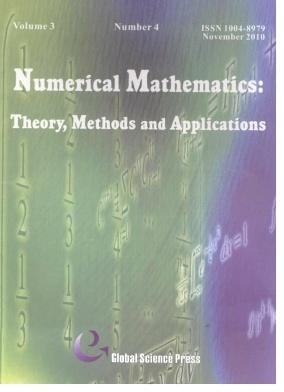An Adaptive Physics-Informed Neural Network with Two-Stage Learning Strategy to Solve Partial Differential Equations
IF 1.8
4区 数学
Q1 MATHEMATICS
Numerical Mathematics-Theory Methods and Applications
Pub Date : 2023-06-01
DOI:10.4208/nmtma.oa-2022-0063
引用次数: 0
Abstract
. Physics-Informed Neural Network (PINN) represents a new approach to solve Partial Differential Equations (PDEs). PINNs aim to solve PDEs by integrating governing equations and the initial/boundary conditions (I/BCs) into a loss function. However, the imbalance of the loss function caused by parameter settings usually makes it difficult for PINNs to converge, e.g. because they fall into local optima. In other words, the presence of balanced PDE loss, initial loss and boundary loss may be critical for the convergence. In addition, existing PINNs are not able to reveal the hidden errors caused by non-convergent boundaries and conduction errors caused by the PDE near the boundaries. Overall, these problems have made PINN-based methods of limited use on practical situations. In this paper, we propose a novel physics-informed neural network, i.e. an adaptive physics-informed neural network with a two-stage training process. Our algorithm adds spatio-temporal coefficient and PDE balance parameter to the loss function, and solve PDEs using a two-stage training process: pre-training and formal training. The pre-training step ensures the convergence of boundary loss, whereas the formal training process completes the solution of PDE求解偏微分方程的两阶段学习策略自适应物理知情神经网络
本文章由计算机程序翻译,如有差异,请以英文原文为准。
求助全文
约1分钟内获得全文
求助全文
来源期刊
CiteScore
2.80
自引率
7.70%
发文量
33
审稿时长
>12 weeks
期刊介绍:
Numerical Mathematics: Theory, Methods and Applications (NM-TMA) publishes high-quality original research papers on the construction, analysis and application of numerical methods for solving scientific and engineering problems. Important research and expository papers devoted to the numerical solution of mathematical equations arising in all areas of science and technology are expected. The journal originates from the journal Numerical Mathematics: A Journal of Chinese Universities (English Edition). NM-TMA is a refereed international journal sponsored by Nanjing University and the Ministry of Education of China. As an international journal, NM-TMA is published in a timely fashion in printed and electronic forms.

 求助内容:
求助内容: 应助结果提醒方式:
应助结果提醒方式:


